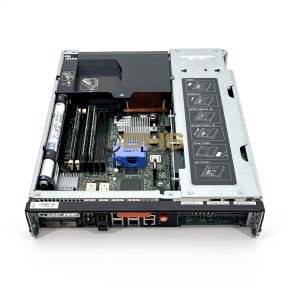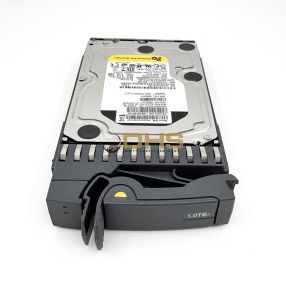-
-
-
-
- SSD
- HDD
- MEMORY
- SWITCH
- WIRELESS
- RACK SERVER
- BACKPLANE
- BATTERY
- BEZELS
- BLADE SERVER
- BLANK
- CABLE
- CADDY
- CONTROLLER
- CPU
- DVD/CD
- EXPANSION
- FAN
- FIREWALL
- GPU
- HBA
- HEAT SINK
- KVM SWITCH
- LIBRARY
- LICENSE
- NETWORK ADAPTER
- NETWORK MODULE
- PDU
- PSU
- RACK MOUNT KIT
- RAID CONTROLLER
- RISER CARD
- ROUTER
- SAN SWITCH
- SCREEN
- SOFTWARE
- SYSTEM
- SYSTEM BOARD
- TAPE
- TOWER SERVER
- TRANSCEIVER
- SERVICE
- PCI CARD
-
-
-
- HDD
- SSD
- MEMORY
- NETWORK ADAPTER
- PSU
- BACKPLANE
- BATTERY
- BEZELS
- BLADE SERVER
- BLANK
- CABLE
- CADDY
- CONTROLLER
- CPU
- DVD/CD
- EXPANSION
- FAN
- GPU
- HBA
- HEAT SINK
- KVM SWITCH
- LIBRARY
- LICENSE
- MOUSE
- NETWORK MODULE
- PDU
- RACK CABINET
- RACK MOUNT KIT
- RACK SERVER
- RAID CONTROLLER
- RISER CARD
- SERVICE
- SOFTWARE
- STACK MODULE
- SWITCH
- SYSTEM
- SYSTEM BOARD
- TAPE
- TOWER SERVER
- TRANSCEIVER
-
-
-
- HDD
- SSD
- MEMORY
- NETWORK ADAPTER
- PSU
- BACKPLANE
- BATTERY
- BEZELS
- BLADE SERVER
- BLANK
- CABLE
- CADDY
- CONTROLLER
- CPU
- DVD/CD
- EXPANSION
- FAN
- GPU
- HBA
- HEAT SINK
- KVM SWITCH
- LIBRARY
- LICENSE
- NETWORK MODULE
- PDU
- RACK CABINET
- RACK MOUNT KIT
- RACK SERVER
- RAID CONTROLLER
- RISER CARD
- SAN SWITCH
- SCREEN
- SOFTWARE
- SWITCH
- SYSTEM
- SYSTEM BOARD
- TAPE
- TRANSCEIVER
- SERVICE
-
-
-
-
-
-
-
-
-
-
-
-
-
-
-
-
Checkout using your account
This form is protected by reCAPTCHA - the Google Privacy Policy and Terms of Service apply.
Checkout as a new customer
Creating an account has many benefits:
- See order and shipping status
- Track order history
- Check out faster
NETAPP



Can’t find what you are looking for?
NetApp Enterprise Storage Solutions
NetApp is a global leader in enterprise storage, offering innovative hardware and software solutions tailored to meet the complex data management needs of modern businesses. With a legacy of storage innovation and a commitment to reliability, NetApp systems are trusted by organizations across industries to provide scalable, secure, and high-performance storage infrastructure. From small businesses to large-scale enterprises, NetApp’s versatile product lineup supports a wide array of applications and deployment models.
Comprehensive Portfolio for Diverse Storage Needs
At the heart of NetApp’s success is its broad portfolio of storage systems, each designed to address specific operational challenges. The FAS (Fabric-Attached Storage) series delivers hybrid storage configurations that balance performance and capacity, ideal for environments requiring flexible workloads and future-proof scalability. These systems support multiple protocols and are often deployed in scenarios where budget, performance, and capacity need to be balanced without sacrificing data availability.
Complementing the FAS line is the AFF (All-Flash FAS) series – purpose-built for performance-critical workloads. With all-flash architecture, AFF systems deliver extremely low latency and high IOPS, making them a prime choice for virtual environments, real-time analytics, and transactional databases. These systems are designed to minimize latency while maximizing throughput, enabling businesses to run mission-critical applications with speed and confidence.
Whether opting for FAS or AFF, NetApp storage solutions come with enterprise-grade data protection, high availability features, and seamless integration with major virtualization and cloud platforms. Organizations benefit from consistent performance, intelligent data services, and the flexibility to evolve with business demands.
ONTAP: Unified Data Management Software
ONTAP is NetApp’s flagship operating system that serves as the intelligent control layer across all NetApp storage solutions. This unified data management platform simplifies the complexity of hybrid and multicloud storage environments by delivering powerful capabilities such as automated tiering, integrated data protection, and comprehensive visibility.
ONTAP enables IT teams to manage block, file, and object storage from a single pane of glass. This consolidated approach reduces infrastructure silos and streamlines storage operations, allowing businesses to increase agility and reduce total cost of ownership. Features like non-disruptive updates, inline data compression, and deduplication optimize both performance and efficiency.
One of ONTAP’s core advantages is its ability to support seamless data movement across different storage tiers and even between on-premises and cloud environments. This data mobility enables organizations to dynamically respond to changing business needs while ensuring continuous data availability.
Choosing the Right NetApp Configuration
Selecting the appropriate NetApp system starts with evaluating workload requirements. Businesses should consider key performance indicators such as latency sensitivity, throughput demands, and scalability needs. For example, environments focused on high-volume transactional processing may benefit from an AFF solution, while file storage and backup repositories might be better served by FAS configurations.
Storage capacity is another critical factor. NetApp systems are designed with scalability in mind, allowing organizations to expand capacity through additional drives or expansion shelves without service disruption. Connectivity considerations, including the need for Fibre Channel, iSCSI, NFS, or SMB protocols, will also influence the choice of hardware and interfaces.
Data protection needs should not be overlooked. NetApp solutions come equipped with robust snapshot capabilities, replication tools, and native encryption support to help organizations meet their recovery point and recovery time objectives (RPO/RTO). For organizations with regulatory requirements or strict uptime goals, NetApp’s dual-controller architecture offers peace of mind through redundant operations.
Specialized Hardware for Targeted Workloads
Beyond general-purpose storage systems, NetApp also offers specialized components to address specific infrastructure needs. These include transceivers for high-speed networking, HBAs for optimized host connectivity, and high-efficiency PSUs that reduce power consumption without compromising performance. Additionally, NetApp’s SSD and HDD solutions cater to different performance tiers, supporting hybrid storage configurations and intelligent data tiering strategies.
For expansion and modular scalability, NetApp provides dedicated shelves that seamlessly integrate with existing storage arrays. These expansion units allow IT teams to scale out capacity in a non-disruptive manner, preserving investment in current infrastructure while accommodating future growth. Complementary accessories such as rack mount kits and blanking panels help ensure proper airflow, efficient use of rack space, and streamlined cable management – crucial in densely packed data centers.
Supporting Hybrid Cloud and Virtualized Environments
Modern IT environments often span multiple data centers and cloud platforms. NetApp's hybrid cloud capabilities allow organizations to move data effortlessly between on-premises storage and public cloud services such as AWS, Azure, and Google Cloud. With tools for cloud backup, disaster recovery, and bursting, businesses gain the flexibility to optimize their infrastructure according to performance, cost, and compliance goals.
Virtualized environments also benefit from NetApp's deep integration with VMware, Hyper-V, and other hypervisors. Features such as thin provisioning, zero-impact snapshots, and VM-level backups allow for efficient resource utilization and streamlined management. Whether deployed in private cloud, hybrid cloud, or traditional data center settings, NetApp hardware delivers consistent performance and centralized control.
Reliability, Performance, and Lifecycle Value
NetApp hardware is engineered for long-term reliability and high availability. Components such as NVRAM-backed batteries, redundant fans, and hot-swappable PSUs ensure that systems remain operational even under adverse conditions. System health monitoring and predictive analytics further enhance reliability by alerting administrators to potential issues before they impact operations.
Many organizations also turn to refurbished NetApp hardware as a cost-effective alternative to new equipment. Professionally restored and tested, refurbished systems and components offer the same reliability and performance at a reduced price, extending the lifecycle of IT investments while maintaining operational integrity.
Building the Right Solution
Finding the right NetApp solution involves aligning technical capabilities with business objectives. Key stakeholders across IT, operations, and finance should collaborate to define performance metrics, budget constraints, and growth expectations. By working with knowledgeable hardware specialists, organizations can ensure that their NetApp deployment is tailored to current workloads and adaptable to future changes.
Ultimately, NetApp’s combination of robust hardware, powerful software, and enterprise support makes it a top choice for organizations seeking dependable, scalable, and future-ready storage solutions. Whether supporting a single application or powering a global hybrid infrastructure, NetApp systems deliver the tools and performance needed to meet today’s challenges and tomorrow’s growth.
- Price:
- Actual Price:


